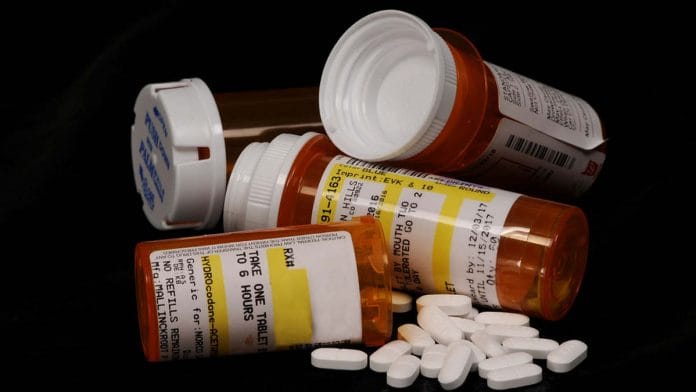New Delhi: Psychosocial consequences related to Covid-19 might place individuals at a heightened likelihood of opioid overdose and could also lead to relapse, found a study published in the peer-reviewed Journal of the American Medical Association (JAMA).
Psychosocial is a combination of social factors and their impact on personal thoughts and behaviour.
Emergency medical service responses to opioid overdoses in Kentucky, US, had “increased in the early weeks following the Covid-19 state emergency declaration compared with the 52 previous days,” said the study, titled ‘Nonfatal Opioid Overdoses at an Urban Emergency Department During the Covid-19 Pandemic’, published Friday.
The study also highlighted that the trend of taking overdoses of opioid was more associated with people suffering from the socio-economic consequences of Covid-19.
“This increased risk of opioid overdose may be particularly concerning among black patients, who have been overrepresented in Covid-19–related infections, hospitalisations, and deaths, as well as associated socio-economic consequences,” the study said.
“Given that emergency departments offer an opportune setting to initiate treatment, this study compared numbers of non-fatal, unintentional opioid-related opioid overdoses presenting to an urban emergency department during the early months of the pandemic relative to the previous year.”
The study has been authored by five researchers from Virginia Commonwealth University — Taylor A. Ochalek, Kirk L. Cumpston, Brandon K. Wills, Tamas S. Gal and F. Gerard Moeller.
Also read: Why vaccines are a better bet against coronavirus than drugs
How was the study conducted?
According to the study, the patients with opioid overdoses from 1 March to 30 June 2019, and from 1 March to 30 June 2020 were identified from electronic medical records from the Virginia Commonwealth University based on the following chief concern terms — overdose, opioid, heroin, fentanyl, and altered mental status.
While the data on opioid overdose fatalities during the second quarter of 2020 was unavailable for the analyses, the intentional opioid overdoses were also excluded, the authors stated.
“Manual medical record reviews to abstract patient characteristics were conducted by two research team members and discrepancies checked against the electronic medical record.”
The authors applied descriptive statistical analyses using IT firm IBM’s Statistical Package for the Social Sciences (SPSS), version 27 — a software used to solve business and research problems.
What did the study find?
The study found that the total number of non-fatal opioid overdose visits increased from 102 between March and June 2019 to 227 between March and June 2020.
The mean ages among patients, who presented with a non-fatal opioid overdose in March-June 2019 and March-June 2020, were 42.2 years and 44.0 years, respectively.
In the emergency department in Virginia, a greater number of visits for opioid overdoses was observed in the first 4 months of the Covid-19 pandemic, and Black patients made up a relatively larger proportion of opioid overdose visits compared with the previous year.
The reasons for the increase in non-fatal opioid overdoses presenting to the emergency department warrant further investigation, the study stated.
Also read: Drug-resistant fungi lurking in ICUs are infecting Covid patients, study in Delhi finds






